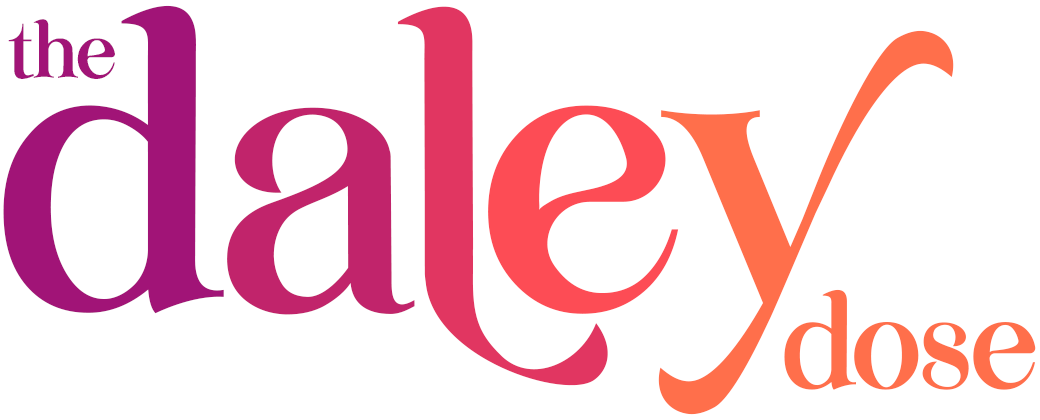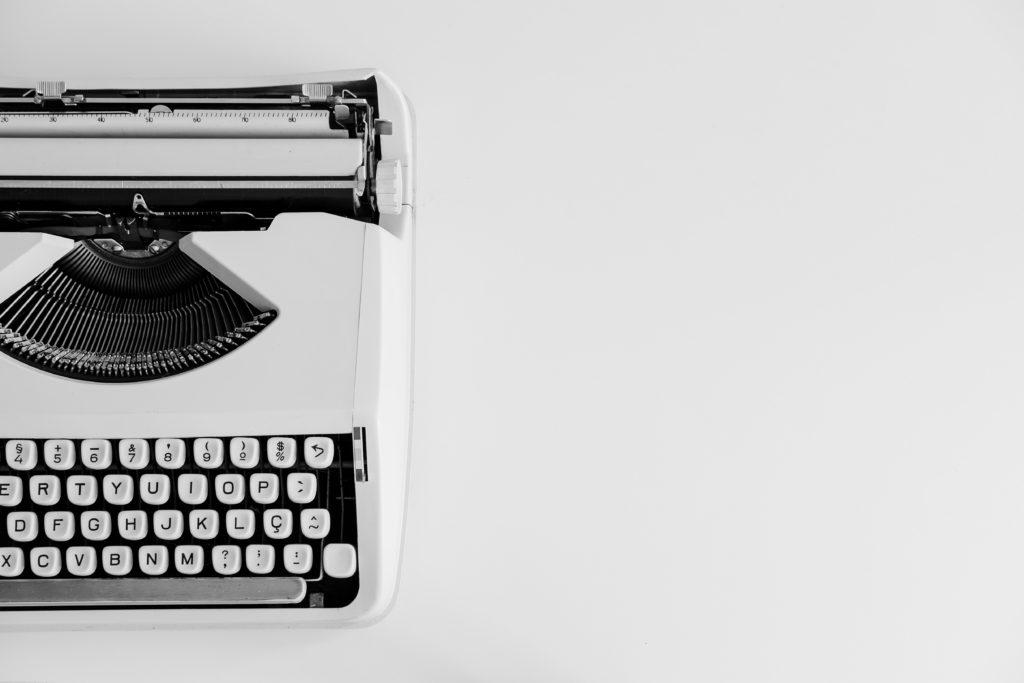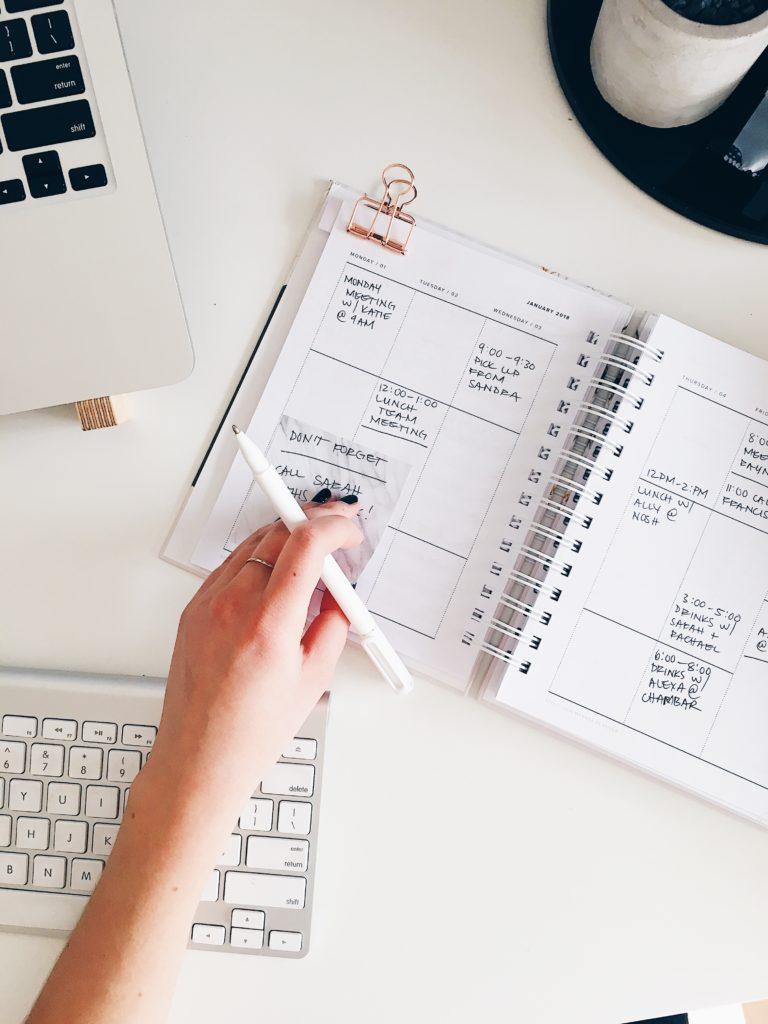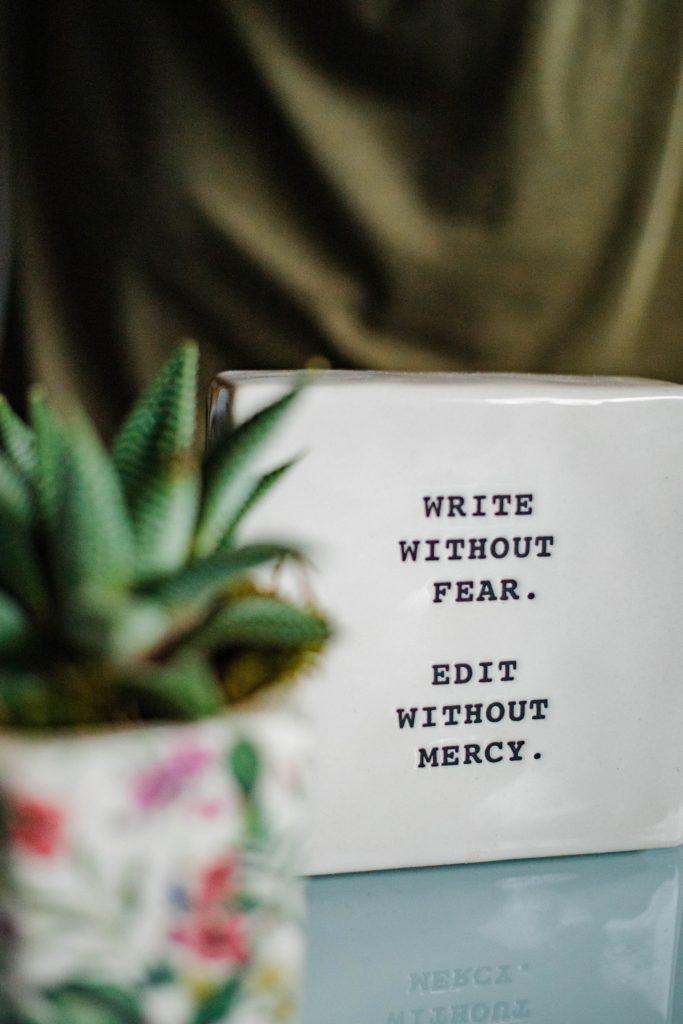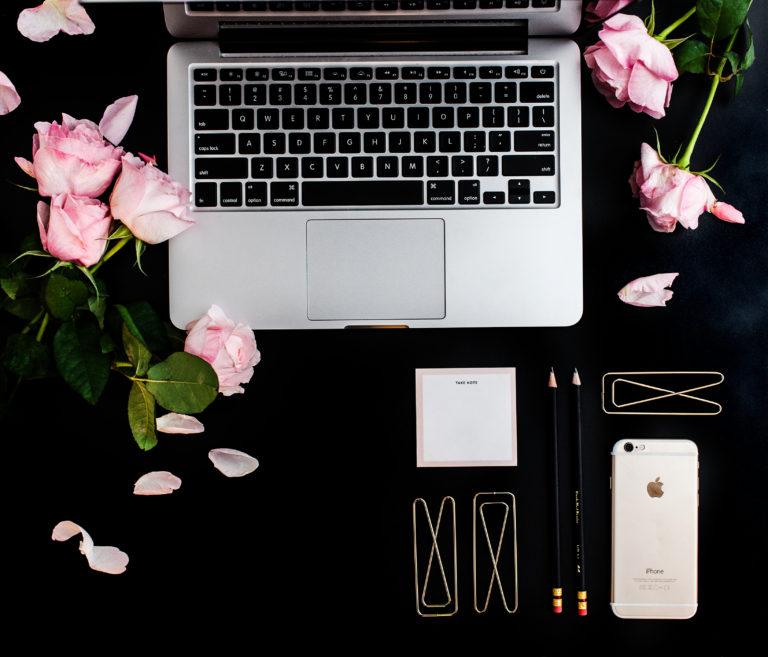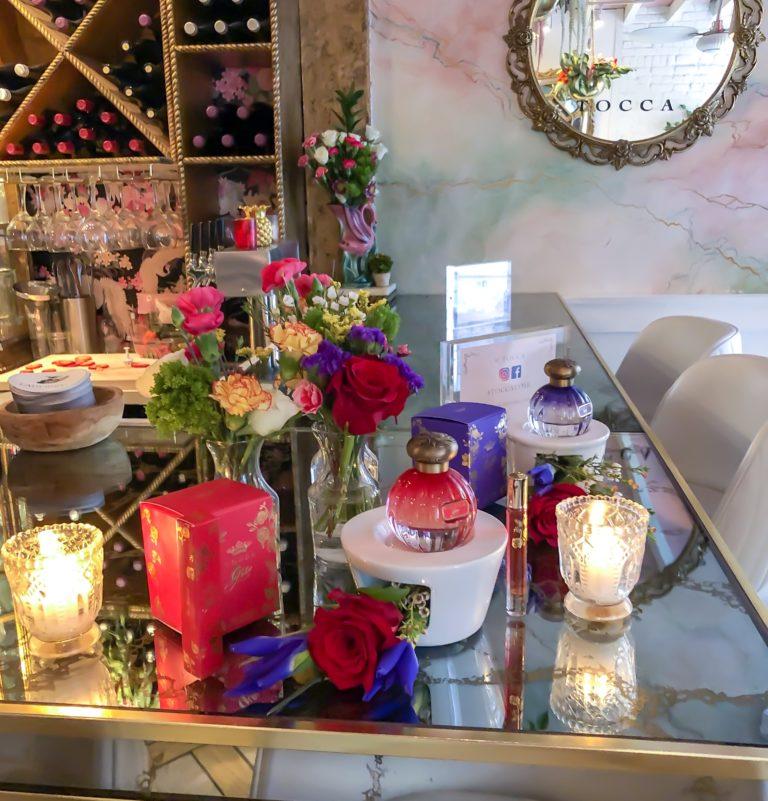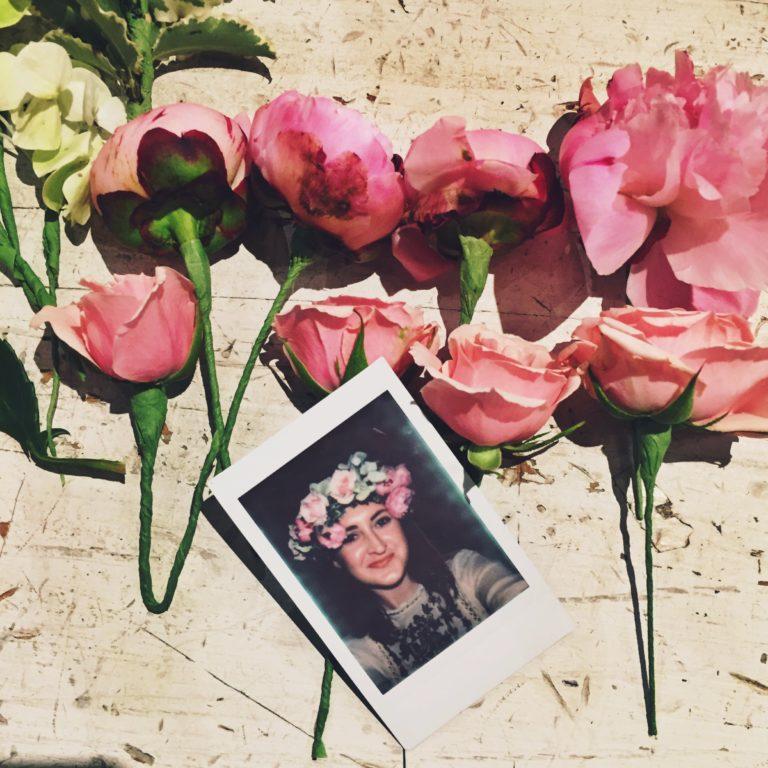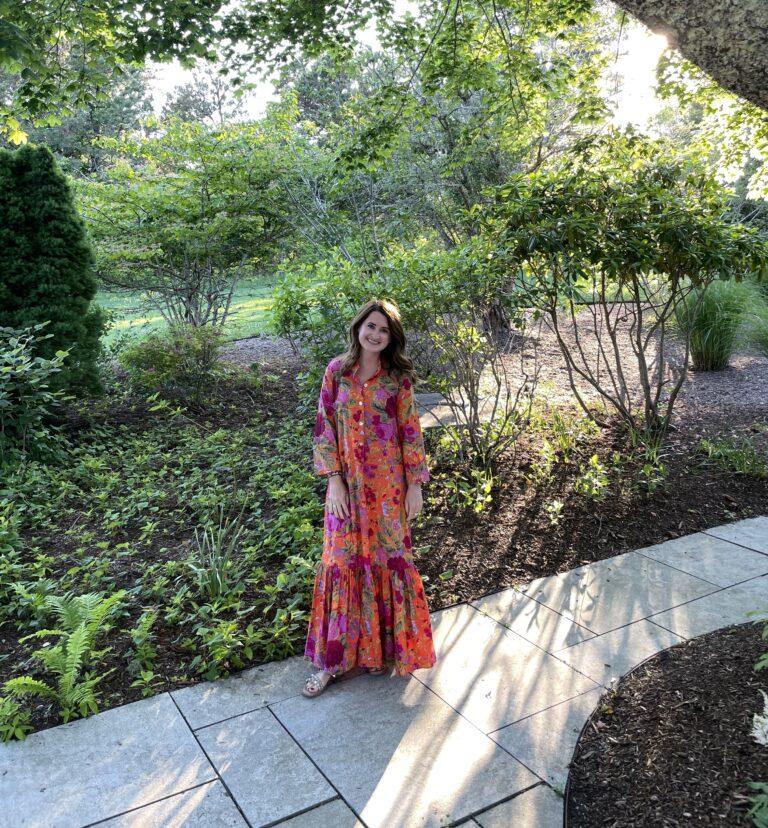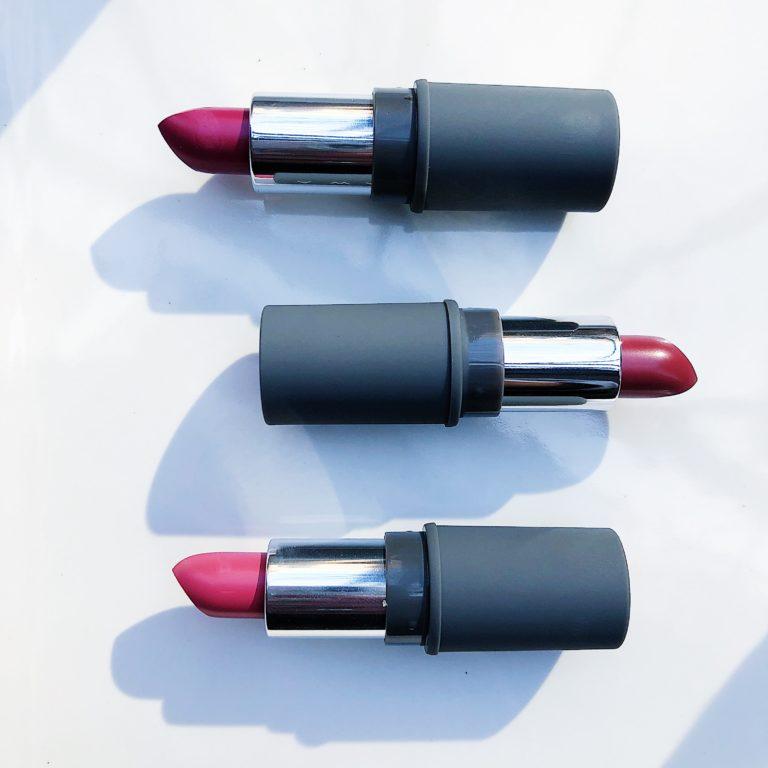Freelance Writing Tips Straight From the Editors Who Can Hire You
I originally compiled this piece to help fellow freelance writers increase their revenue, build better relationships with editors, or even get their foot in the door if they’re just starting out. What I wasn’t expecting was how much I would actually learn myself! Did I write this piece to help out my freelance colleagues, or did I unconsciously interview all of my beauty editor friends so that I could learn how to be a better freelance writer myself? I’m not sure, but either way, there is a plethora of great advice in here from some very wise women in my field.
While interviewing editors, I realized two things: I might be more valuable as a freelance writer than I think, and I can’t believe how many freelance writers actually ghost their editors! I’m in shock (and appalled) that this is even a relatively common practice, and I think it needs to end ASAP. If you only take one piece of advice from this long list, it should be to never ghost an editor—it will come back to haunt you, I promise!
Freelance Writing Tips
On How To Become a Successful Freelance Writer
In my personal and professional experience, there are some skills you have to possess in order to be a successful freelance writer. Here are just a few:
- Stellar time management
- A strong writing style
- A list of potential clients
- Writing samples
- Exceptional research abilities
Regardless of whether you hope to pen a blog post or editorial article, you should perfect these as best you can. And, to be sure, editors agree. Read their tips below.
Tip #1
“In my opinion, a great freelance writer is one who comes prepared, does their research, and is open and receptive to (reasonable) feedback. It’s incredibly refreshing when I can tell a freelancer has done their homework on a site — and you can tell in their ideas and their submitted work. They’ll tailor their pitches to each site they’re reaching out to, understanding the difference in the way some sites might approach a similar topic (i.e. perhaps one site focuses on expert-driven reporting while another site prioritizes personal accounts).” – Senior Beauty & Fashion Editor, 26
Tip #2
“Clear (in their pitch, in the email communication, in their writing), punctual (don’t miss deadlines, accept or turn down assignments in a timely matter), careful (Grammarly is the best—use it! I’m a lot more forgiving of a boring, half-assed story if at least all the grammar and spelling is correct), eager (I want writers who are excited about our site’s mission, actually read it, and want to be a part of what we’re doing! I love when writers share their stories on Instagram and it makes me want to work with them more), and gracious when it comes to feedback and edits.” – Deputy Editor, 30
Tip #3
“There are so many things that make up a great freelancer, but one of the things I love the most is when a writer takes the time to familiarize themselves with the brand and pitches accordingly. For example, we have several franchises on our website, and I always love when I get an email from a writer saying that they’d like to write a piece for one of them. It shows that they’ve done their homework.” – Senior Beauty & Fashion Editor, 28
On What Makes a Great Pitch
When you’re kicking off your freelance writing career or launching your freelance writing business, you’ll soon learn that you have to pitch if you want any work or bylines. Sure, you can refer to job boards to see which editors are looking to dish out assignments, but by and large, you’ll need to sell yourself and your ideas. Keep reading for tips from editors about what makes a great pitch.
Tip #1
“Either really smart and informed pieces, or creative pitches with snappy headlines! I’m all about the science behind beauty and take our work as beauty journalists really seriously, so I want to know that the writers I work with are doing their due diligence by interviewing unbiased experts, staying up to date on studies, and are asking themselves the bigger picture questions. Having said that, I also love the fun and the appalling! I just had a freelancer publish a first-person recount of a vajacial and another one is getting a snake massage, and what I love so much is that their personalities and voices are really coming through.” – Senior Beauty & Fashion Editor, 28
Tip #2
“One that is specific, detailed, and brief. I also wish more writers took the time to use Google. It’s really simple to search and find whether a subject has been covered in the past by us or by our competitors — so it’s always shocking how many pitches I get that are A) things we’ve already covered or B) things our competitors just covered. Uniqueness is important. Why this story, why now, and why should we specifically be the ones to do it?” – Beauty Director, 29
Tip #3
“Something that I couldn’t write, either because I don’t have the time, the personal angle, or the connections/experts you do. A basic, seasonal pitch—TK ways to switch up your skincare for fall, TK ways to keep your New Year’s resolutions—not only won’t be accepted, it won’t make me think you can handle bigger pieces I have to assign. I want super weird and obscure (within reason, it still needs to make sense for the publication) ideas!” – Deputy Editor, 30
On Their Biggest Pet Peeve When Working with Freelance Writers
Even if you have the best writing skills in the world and produce high-quality work, you may not get a freelance writing gig ever again if you ghost an editor. As a professional writer, there’s extra emphasis on professionalism—meaning that you need to keep open lines of communication with your clients. Here’s what editors have to say about that.
Tip #1
“I think a writer/editor relationship needs to be a symbiotic one. Neither of us can do our jobs without the other, so it’s extremely frustrating when writers go MIA, don’t hit deadlines, and don’t communicate about questions or issues they’re running into in the writing process. I’m always happy to help guide a story and offer any resources I can to help execute it — that’s my job! — but I can’t do that if I’m left in the dark about what’s going on. That said, while I’m always down to brainstorm sources or guide research, it also frustrates me when writers don’t take the initiative to do a bit of that on their own, suggesting possible sources or seeking out ways of getting in touch with them on their own.” – Beauty Director, 29
Tip #2
“I’ve been very lucky that I haven’t had too many awful experiences, but I think my biggest pet peeve is when a freelancer turns in a piece that is wildly different from what we discussed. If you notice your angle start to change halfway through a piece or you think a different approach might be better, just communicate that to your editor sooner rather than later. That way, there are no surprises, and you can work together to decide on a new direction for the piece. Other than that, missing deadlines, not sending a fleshed-out pitch, and not submitting clean, self-edited copy are major turn-offs.” – Senior Beauty & Fashion Editor, 26
Tip #3
“People that don’t take edits well. It’s happened more than once when I email a writer and give them specific pointers, whether grammatical errors that constantly come up with them or asking them to do further reporting, and then I either don’t get an answer or I get a snooty one. As an editor, all I want to do is help my writers out and publish great stories for our readers, and I wish some people didn’t take edits personally.” – Senior Beauty & Fashion Editor, 28
On How to Negotiate a Higher Rate
When you’re content writing full-time, sometimes it’s even harder to stretch your dollars. Other times, you realize that your work is worth more—likely because you improve your writing—which means you should ask for more. Below, editors share when they would consider giving a writer a higher rate.
Tip #1
“It’s not about credentials for me—it’s just about being a good writer. If someone turns in an amazing piece and I feel they deserve more than the original rate, I will let them know I want them to write more for us and can raise their rate. I always want to keep talent happy and motivated, so top writers who turn in clean, well-researched, interesting work will always get the top of budget.” – Deputy Editor, 30
Tip #2
“I can’t speak for every publication because every publication is different, but for me, it mainly boils down to experience and the amount of work going into a piece. If you have one year under your belt but have really strong pieces and want to write a piece that will require several interviews, lots of reading through studies, and market research, I wouldn’t hesitate to give them a rate that was higher than a veteran who’s writing a first-person review—given it fits with our budget, of course.” – Senior Beauty & Fashion Editor, 28
Tip #3
“Many factors will, of course, play into rate, but I think any credentials that would make someone an expert on the topic they’re covering is naturally very helpful. Also, if a writer has a wealth of published clips and/or a decent amount of experience freelancing for a high-profile publication, that can also play into rate.” – Senior Beauty & Fashion Editor, 26
On Following Up On Pitches
When you start writing a pitch to an editor, you may be hopeful that they’ll respond to you at their earliest convenience. Not to burst your bubble, but that’s not always the case. In fact, more often than not, you’ll need to follow up with the editor. Why? Because editors get hundreds, if not thousands, of emails a day and it’s totally possible that your pitch fell between the cracks. Keep reading to find three editors’ thoughts on when and how to follow up.
Tip #1
“One follow up is sometimes necessary for the pitch to resurface in my email (we get so many emails!), but generally speaking, it’s not the amount of follow-ups that are “too many,” it’s the timing between follow-ups that is more important. For example, follow-ups that are days apart is too quick (sometimes I’m waiting on budgeting before I can respond or I’m waiting for our edit meeting to happen so I can give better feedback on the pitches). Typically a week to a week and a half between follow-ups is best.” – Senior Beauty Editor, 27
Tip #2
“Personally, I don’t mind getting a ton of follow-ups. I currently have about 500 unanswered emails due to the amount of work I have, so if I don’t reply to an email the odds are that I either just didn’t see it or I haven’t had time to answer. Therefore, I love it when people bug me, because I do want to answer!” – Senior Beauty & Fashion Editor, 28
Tip #3
“I appreciate a follow-up email and typically try to respond to all pitches, so hopefully a third subsequent one isn’t necessary (I do my best!). But in general, if you’re not hearing back from me at all, I think it’s totally fair to continue following up until you do. I rely so much on freelancers and love getting cold pitches and new voices on the site; I’d never intentionally just ignore a thought-out pitch email altogether!” – Beauty Director, 29
On if a Writer’s Social Media Presence Affects Whether They’ll Work With Them
Tip #1
“Definitely. My biggest pet peeve is when writers post in Facebook groups basically announcing all the stories they’re working on and crowdsourcing product or expert recommendations. For one thing, it’s beyond lazy. I am paying you to do the research yourself. For another, I don’t want other writers and editors to know what stories are on my site’s upcoming editorial calendar. I remember everyone who does that and I will never work with them.” – Deputy Editor, 30
Tip #2
“It depends on the story, but for the most part, yes. It’s not make-or-break (i.e. a huge Twitter presence is absolutely not a requirement), but when it comes to working with a new writer for the first time, some sort of presence/public awareness and engagement in the topics we cover is obviously helpful.” – Beauty Director, 29
Tip #3
“None, and this had honestly never occurred to me. I couldn’t care less how active you are on social because I’m not super active myself!” – Senior Beauty Editor, 31
On Pitching To a New Editor
Regardless of the type of writing you’re doing, you’ll likely need to work with a new editor at some point. Below, three editors share what they want new writers to include when sending them a pitch.
Tip #1
“I like to know what other outlets they’ve written for, if they’ve written for anyone else that I’ve worked with in the past (so I can get a reference/valued opinion), and see clips.” – Senior Beauty Editor, 31
Tip #2
“A professional-looking website is a nice touch, but for me, it’s not crucial. I think a few well-chosen clips that they are especially proud of and/or that epitomize the type of work they’d want to do for me are most useful. I would also suggest just going in with 2-3 (no more) extremely well-thought-out, tailored pitches, rather than a long list of vague ideas they are clearly pitching around cold to a long list of outlets. And then, of course, it’s always helpful to know someone’s rates right off the bat.” – Beauty Director, 29
Tip #3
“I like to see 2-3 links to stories they’ve done that they love. I find that personal essays are the best for analyzing how good of a writer someone will be and what their voice is like and I also want to see a bigger, researched feature that showcases how they use experts in stories.” – Deputy Editor, 30
On The Best Day to Pitch
Tip #1
“Probably Wednesday or Thursday for me — the front of my week is too aggressively loaded up.” – Senior Beauty Editor, 31
Tip #2
“Mid-month is generally prime time to receive pitches because that’s when I’m starting to assign pieces for the next month, but I take pitches on a rolling basis.” – Senior Beauty & Fashion Editor, 28
Tip #3
“I don’t have a preference, but I suppose Friday is a slower day, so a Friday morning pitch would give me time to read it over when I’m not stressed and assign it before the weekend.” – Deputy Editor, 30
On Getting Feedback on Your Writing
Believe me when I tell you: There will be edits—yes, even if you have years of experience like I do. The important thing is that you’re open to those edits and that you don’t take them personally. Even something low-stakes like a guest post, or writing for another website or blog, will have editorial feedback. It’s important that you take it on the chin.
Tip #1
“I also think it’s really important to go back and carefully read the final version of the story that gets published. See what changes were made, learn from them, and don’t be afraid to ask for feedback if you’re confused about something. It will make you a better writer and the editor will know you’re making an effort to learn and become even more valuable to them in the future. Taking feedback well and asking for constructive criticism goes a long way; even if something needs a major revision after the first draft, it’s the writers who take revisions seriously and nail it on the second draft that stand out.” – Beauty Director, 29
